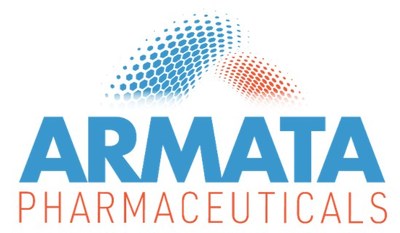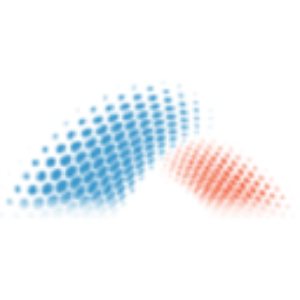Armata Pharmaceuticals Announces Presentation at the 2024 Military Health System Research Symposium
Armata Pharmaceuticals (NYSE American: ARMP) announced a poster presentation at the 2024 Military Health System Research Symposium. The presentation highlights two phage development programs: inhaled AP-PA02 for Pseudomonas aeruginosa bronchiectasis and intravenous AP-SA02 for Staphylococcus aureus bacteremia. The company is 80% through enrollment in its Phase 1b/2a study (diSArm) of AP-SA02, expecting completion by end of 2024. AP-SA02 development is supported by a $21.6 million Department of Defense grant. Both phage candidates have been well-tolerated in clinical trials, allowing for higher doses. Armata plans to advance both candidates to pivotal Phase 3 trials in 2025. Preliminary data suggests intravenous AP-SA02 is active in all subjects, with longer persistence in some, potentially indicating in vivo amplification. Inhaled AP-PA02 shows promise as an alternative to inhaled antibiotics for P. aeruginosa bronchiectasis.
Armata Pharmaceuticals (NYSE American: ARMP) ha annunciato una presentazione con poster al Simposio di Ricerca del Sistema Sanitario Militare 2024. La presentazione evidenzia due programmi di sviluppo di fagi: AP-PA02 inalato per la bronchiectasia da Pseudomonas aeruginosa e AP-SA02 endovenoso per la batteriemia da Staphylococcus aureus. L'azienda è all'80% dell'arruolamento nel suo studio di Fase 1b/2a (diSArm) di AP-SA02, con completamento previsto entro la fine del 2024. Lo sviluppo di AP-SA02 è supportato da un finanziamento di 21,6 milioni di dollari del Dipartimento della Difesa. Entrambi i candidati fagi sono stati ben tollerati negli studi clinici, consentendo dosi più elevate. Armata intende portare entrambi i candidati a prove decisive di Fase 3 nel 2025. Dati preliminari suggeriscono che l'AP-SA02 endovenoso è attivo in tutti i soggetti, con una persistenza più lunga in alcuni, potenzialmente indicativa di amplificazione in vivo. L'AP-PA02 inalato mostra promettente come alternativa agli antibiotici inalati per la bronchiectasia da P. aeruginosa.
Armata Pharmaceuticals (NYSE American: ARMP) anunció una presentación en formato póster en el Simposio de Investigación del Sistema de Salud Militar 2024. La presentación destaca dos programas de desarrollo de fagos: AP-PA02 inhalado para la bronchiectasia por Pseudomonas aeruginosa y AP-SA02 intravenoso para la bacteriemia por Staphylococcus aureus. La compañía está completando el 80% de la inclusión en su estudio de Fase 1b/2a (diSArm) de AP-SA02, con la expectativa de finalizarlo a finales de 2024. El desarrollo de AP-SA02 cuenta con el apoyo de un subsidio de 21.6 millones de dólares del Departamento de Defensa. Ambos candidatos a fago han sido bien tolerados en ensayos clínicos, lo que permite el uso de dosis más altas. Armata planea avanzar ambos candidatos a ensayos cruciales de Fase 3 en 2025. Los datos preliminares sugieren que AP-SA02 intravenoso es activo en todos los sujetos, con una persistencia más prolongada en algunos, lo que podría indicar amplificación in vivo. AP-PA02 inhalado muestra promesa como alternativa a los antibióticos inhalados para la bronchiectasia por P. aeruginosa.
Armata Pharmaceuticals (NYSE American: ARMP)는 2024 군 의료 시스템 연구 심포지엄에서 포스터 발표를 진행한다고 발표했습니다. 발표는 두 가지 파지 개발 프로그램을 강조합니다: Pseudomonas aeruginosa 기관지 확장에서의 흡입형 AP-PA02와 Staphylococcus aureus 혈액 감염에 대한 정맥 주입형 AP-SA02입니다. 회사는 AP-SA02의 1b/2a 단계 연구(diSArm)에서 80%의 등록을 완료하였으며, 2024년 말까지 완료될 것으로 예상하고 있습니다. AP-SA02 개발은 2160만 달러의 국방부 지원을 받고 있습니다. 두 파지 후보는 임상 시험에서 잘 견뎌온 것으로 밝혀져, 더 높은 용량을 허용합니다. Armata는 두 후보를 2025년 3상 주요 시험으로 발전시킬 계획입니다. 예비 데이터는 정맥 주입형 AP-SA02가 모든 피험자에서 활성 상태이며, 일부 피험자에서 더 긴 지속 시간을 보이며, 이는 in vivo 증폭을 나타낼 수 있음을 시사합니다. 흡입형 AP-PA02는 P. aeruginosa 기관지 확장에서 흡입 항생제의 대안으로서 유망한 결과를 보여줍니다.
Armata Pharmaceuticals (NYSE American: ARMP) a annoncé une présentation par affiche lors du Symposium de Recherche sur la Santé Militaire 2024. La présentation met en lumière deux programmes de développement de phages : l'AP-PA02 inhalé pour la bronchiectasie causée par Pseudomonas aeruginosa et l'AP-SA02 intraveineux pour la bactériémie due à Staphylococcus aureus. L'entreprise a terminé 80% du recrutement dans son étude de Phase 1b/2a (diSArm) sur l'AP-SA02, avec une finalisation prévue d'ici la fin de 2024. Le développement de l'AP-SA02 est soutenu par un subside de 21,6 millions de dollars du Département de la Défense. Les deux candidats phages ont été bien tolérés lors des essais cliniques, permettant des doses plus élevées. Armata prévoit de faire progresser les deux candidats vers des essais pivots de Phase 3 en 2025. Des données préliminaires suggèrent que l'AP-SA02 intraveineux est actif chez tous les sujets, avec une persistance plus longue chez certains, ce qui pourrait indiquer une amplification in vivo. L'AP-PA02 inhalé montre des résultats prometteurs comme alternative aux antibiotiques inhalés pour la bronchiectasie causée par P. aeruginosa.
Armata Pharmaceuticals (NYSE American: ARMP) gab eine Posterpräsentation beim 2024 Military Health System Research Symposium bekannt. Die Präsentation hebt zwei Phagen-Entwicklungsprogramme hervor: inhalatives AP-PA02 für die bronchiektatische Erkrankung durch Pseudomonas aeruginosa und intravenöses AP-SA02 für die Bakteriämie durch Staphylococcus aureus. Das Unternehmen hat bereits 80% der Rekrutierung in seiner Phase 1b/2a Studie (diSArm) von AP-SA02 abgeschlossen und erwartet den Abschluss bis Ende 2024. Die Entwicklung von AP-SA02 wird durch einen 21,6 Millionen Dollar umfassenden Zuschuss des Verteidigungsministeriums unterstützt. Beide Phagenkandidaten wurden in klinischen Studien gut vertragen, was höhere Dosen ermöglicht. Armata plant, beide Kandidaten in entscheidende Phase 3-Studien im Jahr 2025 voranzubringen. Vorläufige Daten legen nahe, dass das intravenöse AP-SA02 in allen Probanden aktiv ist, wobei eine längere Persistenz bei einigen auftritt, was möglicherweise eine in vivo Amplifikation anzeigt. Inhalatives AP-PA02 zeigt vielversprechende Ergebnisse als Alternative zu inhalativen Antibiotika bei der bronchiektatischen Erkrankung durch P. aeruginosa.
- 80% enrollment completion in Phase 1b/2a study of AP-SA02
- $21.6 million Department of Defense grant supporting AP-SA02 development
- Both phage candidates well-tolerated in clinical trials
- Plans to advance both AP-SA02 and AP-PA02 to pivotal Phase 3 trials in 2025
- Preliminary data shows intravenous AP-SA02 active in all subjects
- Inhaled AP-PA02 shows promise as alternative to inhaled antibiotics
- None.
The poster provides an overview of Armata's two distinct phage development programs, inhaled AP-PA02 (Pseudomonas aeruginosa bronchiectasis) and intravenous AP-SA02 (Staphylococcus aureus (S. aureus) bacteremia), which are being or have been evaluated in three distinct double-blind, placebo-controlled Phase 2 clinical trials.
Regarding AP-SA02, Armata is currently advancing its Phase 1b/2a multiple ascending dose study (diSArm) of intravenous AP-SA02 as an adjunct to best available antibiotic therapy (BAT) compared to BAT alone. Enrollment of the diSArm study is
The clinical development of AP-SA02 is supported by a
"We are excited to participate in this year's MHSRS and highlight the rigorously designed double-blind, placebo-controlled clinical trials that we are executing for both of our phage candidates," stated Dr. Pastagia. "Through our completed and ongoing Phase 2 trials, our phage candidates have been well tolerated, allowing us to evaluate higher phage doses that can increase the ability of our phages to fulfill their mechanism of action of attacking only pathogenic bacteria. This in turn is expected to provide Armata with the necessary data to inform how best to administer phage therapy and decrease the usage of broad-spectrum antibiotics so as to preserve the human microbiome in an effort to lower patient morbidity. We greatly appreciate the collaborative partnership with the NMRC and NAMD as well as MTEC for its financial support of our AP-SA02 program. We look forward to advancing both AP-SA02 and AP-PA02 into pivotal Phase 3 trials next year with the hope of introducing a distinct new class of anti-infectives to patient care."
Poster presentation details: | |
Title: | Phase 2 Clinical Trials Evaluating Multi-Phage Candidates for the Treatment of Adults with Bacteremia due to Staphylococcus aureus (diSArm) and Chronic Respiratory Infections due to Pseudomonas aeruginosa (SWARM-P.a. & Tailwind) |
Breakout session: | Treating Refractory Hypoxemia on the Battlefield: What Does the Future Hold? |
Date/time: | Tuesday, August 27, 10:00 am – 12:00 pm EDT |
Summary: Multiple-dose administration of intravenous AP-SA02 and inhaled AP-PA02 have been well tolerated to date. Preliminary pharmacokinetic data suggests intravenous AP-SA02 is active in all subjects, with longer phage persistence in a significant subset of subjects potentially demonstrating a persistent reservoir of S. aureus bacteria (despite antibiotics) and in vivo amplification of the phages. This may garner increased clinical benefit for patients with difficult-to-treat S. aureus infections. Preliminary evidence supports inhaled AP-PA02 monotherapy as a viable alternative to inhaled antibiotics in Pseudomonas aeruginosa bronchiectasis. Promising data for both phage candidates is expected to be utilized for planning pivotal Phase 3 clinical trials in 2025.
About MHSRS
The MHSRS is the Department of Defense's foremost scientific meeting. It provides a venue for presenting new scientific knowledge resulting from military-unique research and development. The MHSRS is the premier military or civilian meeting that focuses specifically on the unique medical needs of the warfighter.
The MHSRS provides a collaborative setting for the exchange of information between military providers with deployment experience, research and academic scientists, international partners, and industry on research and related health care initiatives falling under the topic areas of Combat Casualty Care, Military Operational Medicine, Clinical and Rehabilitative Medicine, Information Sciences, Military Infectious Diseases, and Radiation Health Effects.
About Armata Pharmaceuticals, Inc.
Armata is a clinical-stage biotechnology company focused on the development of pathogen-specific bacteriophage therapeutics for the treatment of antibiotic-resistant and difficult-to-treat bacterial infections using its proprietary bacteriophage-based technology. Armata is developing and advancing a broad pipeline of natural and synthetic phage candidates, including clinical candidates for Pseudomonas aeruginosa, Staphylococcus aureus, and other pathogens. Armata is committed to advancing phage therapy with drug development expertise that spans bench to clinic including in-house phage specific cGMP manufacturing.
Forward Looking Statements
This communication contains "forward-looking" statements as defined by the Private Securities Litigation Reform Act of 1995. These statements relate to future events, results or to Armata's future financial performance and involve known and unknown risks, uncertainties and other factors which may cause Armata's actual results, performance or events to be materially different from any future results, performance or events expressed or implied by the forward-looking statements. In some cases, you can identify these statements by terms such as "anticipate," "believe," "could," "estimate," "expect," "intend," "may," "plan," "potential," "predict," "project," "should," "will," "would" or the negative of those terms, and similar expressions. These forward-looking statements reflect management's beliefs and views with respect to future events and are based on estimates and assumptions as of the date of this communication and are subject to risks and uncertainties including risks related to Armata's development of bacteriophage-based therapies; ability to staff and maintain its production facilities under fully compliant current Good Manufacturing Practices; ability to meet anticipated milestones in the development and testing of the relevant product; ability to be a leader in the development of phage-based therapeutics; ability to achieve its vision, including improvements through engineering and success of clinical trials; ability to successfully complete preclinical and clinical development of, and obtain regulatory approval of its product candidates and commercialize any approved products on its expected timeframes or at all; and Armata's estimates regarding anticipated operating losses, capital requirements and needs for additional funds. Additional risks and uncertainties relating to Armata and its business can be found under the caption "Risk Factors" and elsewhere in Armata's filings and reports with the SEC, including in Armata's Annual Report on Form 10-K, filed with the SEC on March 21, 2024, and in its subsequent filings with the SEC.
Armata expressly disclaims any obligation or undertaking to release publicly any updates or revisions to any forward-looking statements contained herein to reflect any change in Armata's expectations with regard thereto or any change in events, conditions or circumstances on which any such statements are based.
Media Contacts:
At Armata:
Pierre Kyme
Armata Pharmaceuticals, Inc.
ir@armatapharma.com
310-665-2928 x234
Investor Relations:
Joyce Allaire
LifeSci Advisors, LLC
jallaire@lifesciadvisors.com
212-915-2569
![]() View original content to download multimedia:https://www.prnewswire.com/news-releases/armata-pharmaceuticals-announces-presentation-at-the-2024-military-health-system-research-symposium-302229772.html
View original content to download multimedia:https://www.prnewswire.com/news-releases/armata-pharmaceuticals-announces-presentation-at-the-2024-military-health-system-research-symposium-302229772.html
SOURCE Armata Pharmaceuticals, Inc.








